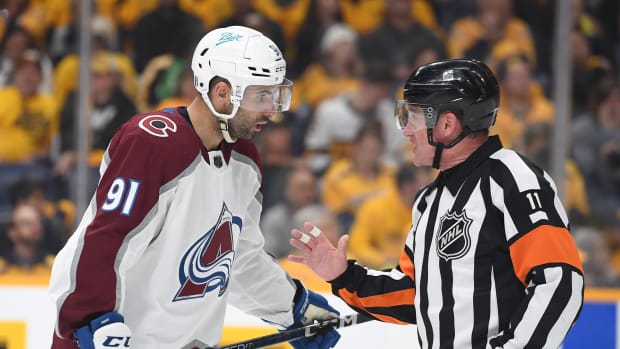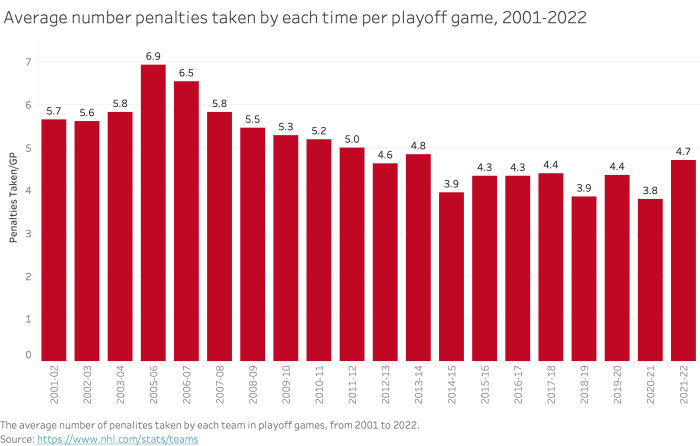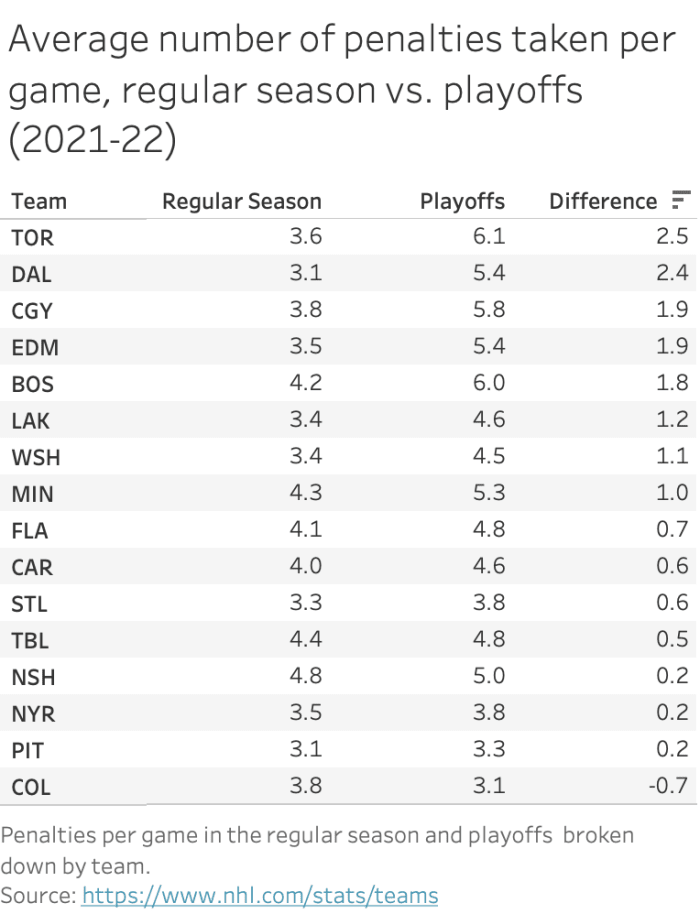In Game 7 of Tampa Bay and Toronto’s first-round battle, the Leafs’ John Tavares appeared to tie the game 1-1 at match’s the midway point. The Leaf’s captain slipped out from behind the net and up to the slot where he sent a puck flying over the shoulder of Andrei Vasilevsky. Naturally, Toronto’s Scotiabank Arena erupted – but the cheers were short lived.
Sharp-eared listeners likely heard the ref’s whistle sounding off just seconds before Tavares shot. Leafs defenceman Justin Holl appeared to set a basketball-style pick on Tampa’s Anthony Cirelli, who was hot on Tavares’ tail. The call was interference and the boos that followed the ref’s no-goal announcement seemed as loud as the cheers that came just seconds before.
To the dismay of Toronto fans, Tampa went on to win the game 2-1, clinching a second round berth and ending the Leafs’ playoff aspirations. In the aftermath of the game, most discussion wasn’t centered on the substance of the exciting game itself. Instead, debates raged on about the controversial call.
Officiating impacts every game, for better or for worse. Penalty decisions are always bound to cause controversy, especially in the post-season. The stakes are indeed higher, but what seems to make matters worse is fans expect a whole new set of rules in the post-season. Referees are expected to swallow their whistles to preserve the playoff hockey atmosphere.
This puts officials in a tough spot. Penalties that are called are met with “Sure, that was a penalty, but not in the playoffs!†Penalties that are ignored leave fans frustrated as the rules they grew accustomed to in the regular season are seemingly abandoned.
It’s an impossibly fine-line to find. When fans expect the game to be played with two sets of rules – one clear and one unspoken – you end up with controversial moments like Game 7’s no-goal call.
This post-season, officiating has been a heightened point of contention – many fans are claiming that the refs have been calling too many penalties. But do the numbers support this? Are refs actually calling more penalties than they usually do? How different is playoff officiating really? Which teams have been getting penalized the most? Here are some of the trends surrounding this year’s officiating.
This year vs. past years:
When compared to the last several years of playoff hockey, this year, penalty calls are up. Last year, each team averaged 3.8 penalties per game in the playoffs. This year, teams are averaging 4.7. The per game average of 4.7 is actually the highest it’s been in the playoffs since the 2013-14 post-season.
In the context of the last 10 years, 4.7 penalties per team is still relatively high – it’s the third most since the 2011-12 postseason. While this seems to confirm suspicions that officials have been more active than they usually are, there’s more to it than that. In the context of the last 20 years, 4.7 penalties per team is relatively low. This year’s average is actually lower than every post-season’s from 2001 to 2012.
So, it’s not exactly that refs are calling an exceptionally high number of penalties this year. Rather, it seems that penalty calling took a significant step back around the turn of the decade. We’ll have to wait to see if these playoffs are an anomaly, or a return to previous officiating patterns.
Regular Season vs. Playoffs:
Contrary to expectations, officials have been calling penalties at a higher rate in this year’s playoffs than they were during the regular season. Prior to the post-season, teams were awarded an average of 3.7 penalties per game, or a full penalty less than in the playoffs. The adage that refs let more slide in the playoffs rings untrue, at least in the context of this year.
Who’s getting the calls?
Teams are rarely punished at the same rate – this post-season, the Colorado Avalanche have been penalized the least, with 3.1 per game. The Avs are the only team to see their penalties per game decrease from the regular season, taking over half a penalty less per game in the playoffs.
On the opposite end of that spectrum? The Toronto Maple Leafs. Through their seven game playoff stretch, the Leafs were averaging a league high 6.1 penalties per game. Their total penalties per game increased the most from the regular season – jumping up by a full 2.5 penalties per game.
While it’s easy to feel cheated when your team is at the losing end of these lists, that’s likely just the nature of an imperfect system as these figures tend to change year by year. Still, this system could likely be a little closer to perfect if fans knew exactly what to expect out of post-season reffing.





